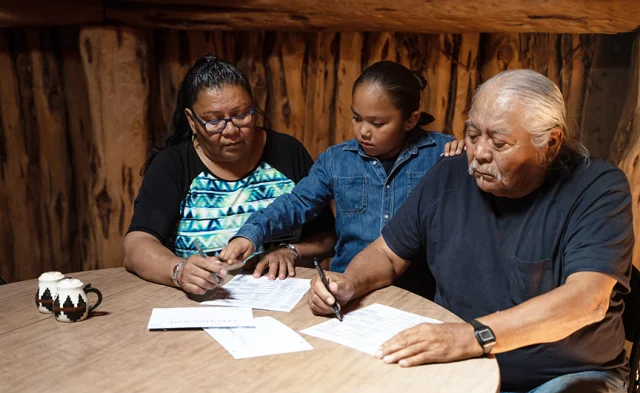
Financial Survival of Low-Income Disabled
A monthly disability check from the federal government is a lifeline for poor and low-income persons with disabilities, but they still face a daily struggle to meet their basic needs and cover their expenses.
In in-depth interviews, 35 low-income people in Worcester, Massachusetts, described how they make ends meet on the disability benefit they get from Social Security, which averages $912 a month and is their largest source of income. Another $300 comes from other forms of public assistance, family support, or minimum-wage jobs, according to a new issue brief by Mathematica’s Center for Studying Disability Policy.
The daily struggles that each individual faces are as unique as they are. Here are a few excerpts from the study:
“My rent is subsidized. Plus I work 20 hours a week which is pretty good. I bring home more than one hundred something dollars a week and I get a few dollars in food stamps. So it’s okay.”
“I’m stringing it, managing it, and just barely staying above water. I’ve been treading that water for a long time.”
“My situation is challenging. I sometimes just don’t have enough coming in to make what’s going out.”
Three out of four people in the study told interviewers that they find it very difficult to pay for their housing, food and other basic expenses. A bright spot is that people on federal disability insurance (DI) are also covered by Medicare and/or Medicaid and spend very little on medical care. “I’m getting everything I need,” one individual said about her healthcare.
Securing low-cost housing is a key survival strategy. Housing is the largest expense, so minimizing it is critical. But only 14 of the 35 have Section 8 or other publicly subsidized housing – some complained about very long waiting lists. Those lacking a subsidy often live with family or share an apartment. Eight people in the study are homeless.
“If I was trying to pay my brother the amount of rent that I should be paying, I would be falling behind,” one DI recipient said. Another person lives in a three-room house with three roommates and doesn’t have a bedroom: “I sleep on a little foam pad that’s folded. It’s good enough for me for right now.”
Six of them were employed, earning between $400 and $1,100 per month. This helped them to make ends meet without jeopardizing their federal benefits. Some said they raise cash by doing small jobs like collecting soda cans and braiding hair.
A cell phone is viewed as a necessity: every one of the 35 people owned a phone and usually paid market prices for their phones.
The majority of them also receive food stamps, which cover 44 percent of their food budgets, and some frequent food banks. But when the money runs low at the end of the month, one in four said they sometimes skipped a meal. “Food is expensive and food stamps go fast,” one person explained.
Even with the regular check that comes in the mail every month, eking out a living on federal disability insurance requires creativity, sacrifice and often hardship.
To read the study, authored by Jack Gettens and Alexis Henry, see “Making Ends Meet: How Low-income Social Security Disability Insurance Beneficiaries Meet their Needs.”
The research reported herein was performed pursuant to a grant from the U.S. Social Security Administration (SSA) funded as part of the Retirement Research Consortium. The opinions and conclusions expressed are solely those of the author(s) and do not represent the opinions or policy of SSA or any agency of the federal government. Neither the United States Government nor any agency thereof, nor any of their employees, makes any warranty, express or implied, or assumes any legal liability or responsibility for the accuracy, completeness, or usefulness of the contents of this report. Reference herein to any specific commercial product, process or service by trade name, trademark, manufacturer, or otherwise does not necessarily constitute or imply endorsement, recommendation or favoring by the United States Government or any agency thereof.






